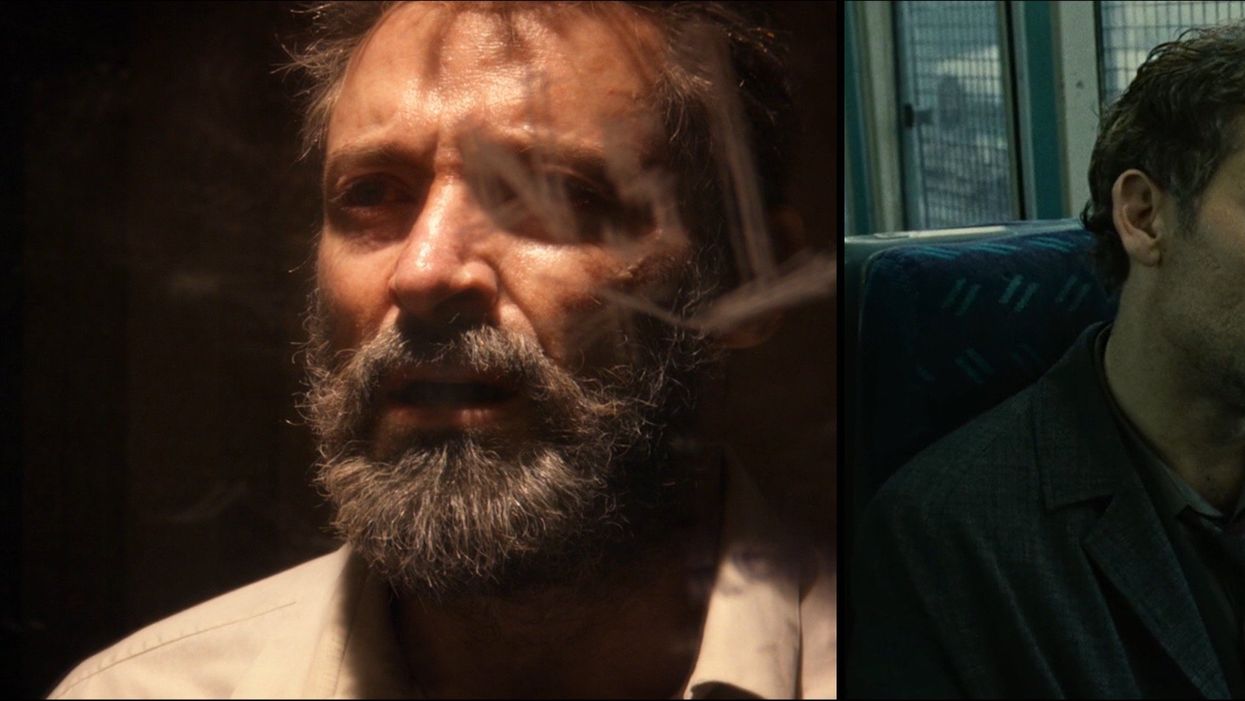Watch: 3 Storytelling Devices From the Strikingly Similar 'Logan' and 'Children of Men'
The heroes of 'Logan' and 'Children of Men' follow similar paths to redemption.

[Spoiler alert: This post contains significant plot points from both films.]
The final installment in the X-Men series, Logan, is far and away the bleakest, and, in many ways, most realistic to come out of that franchise. In this latest video from Lessons from the Screenplay, Michael Tucker argues that, on a story level, Logan uses many of the same archetypes and storytelling principles as does another film, Children of Men.
While some have pointed out the similarities between the two films before, Tucker particularly notes the parallel tale-telling of two disillusioned heroes. See his essay below and read on for our take on three useful storytelling devices the films use in telling their bleak, but ultimately hopeful, stories.
1. The "Lie in the Normal World"
At the beginning of both films, the main characters are trapped inside self-defeating lies about themselves, as well as about the way the world works. Quoting from KM Weiland's book on creating arcs, "the normal world dramatizes the lie the character believes. It empowers the character in that way, giving him no reason to look beyond it."
In Children of Men, the prospect of no more new life has plunged the world into chaos, and the film's hero, Theo, drifts through his days, apathetic and drinking his way around a highly militarized world, full of suffering. In one of the first scenes, while a crowd of people in a cafe are glued to a TV, mourning the death of the world's youngest person, Theo, hungover and disgusted by what he can only see as phony sentimentality, walks out just before the explosion of a bomb. In this moment, his apathy has, literally, saved his life, and the external world has only confirmed his views.
In Logan, the title character's normal world consists of caring for Charles Xavier, who is ill, while realizing that helping Xavier is costing him his own health. As Tucker puts it, "Logan believes that caring about family will only lead to pain," and as in Children of Men the story world empowers this lie even further. Both protagonists stay away from involvement with others, and in Logan, just as in Children of Men, extinction plays a large part of this isolation, as there has not been a mutant born for 25 years (while in Children, the youngest person had been 18.) In both films, though, "the protagonist's normal world gives them no reason to ever challenge their lie."
"The protagonist's normal world gives them no reason to ever challenge their lie."
2. A Dangerous Mission
An inciting incident is the thing that sets the story in motion; it begins the process by which the lies the character believes will be dismantled. At this point in the story, though, both characters are firmly entrenched inside their solitary worlds, and so it's pointless to appeal to their better natures. In both films, the protagonists agree to undertake dangerous missions across long distances, though because taking such a dangerous journey for selfless reasons would go against the lie they've built up for themselves (that, in a world with no future, it is pointless to care about other people), the only thing that can convince them to take the journey is money, at which point they both reluctantly agree.
3. Into the Future
In both films, the journeys of the protagonists have led them to places where, though they are still operating out of cynical self-interest, they are no longer comfortably ensconced inside of their own worlds, or their fictions about how the world works. Then, something happens to jolt them out of their apathy, and into an understanding that what they believed before might not be so true, after all.
In Children of Men, it's the moment when Theo realizes that Kee, the refugee the girl who he's escorting is actually experiencing the first new pregnancy in 18 years. And in Logan, it's the moment when Logan comes to see that not only is Laura a mutant, but that she is also his daughter.
Both of these revelations raise the stakes for the heroes immeasurably and set them on a path where their old ways of looking at the world will be rendered moot by this new reality that they've stepped into, however unwittingly. By the end of each film, both Theo and Logan, by coming to believe in the possibility of a future, will be immeasurably changed by the journeys they take, journeys which will propel them from a stagnant, solitary world, into one in which their actions will change both the world around them, and themselves.
Source: Lessons from the Screenplay











